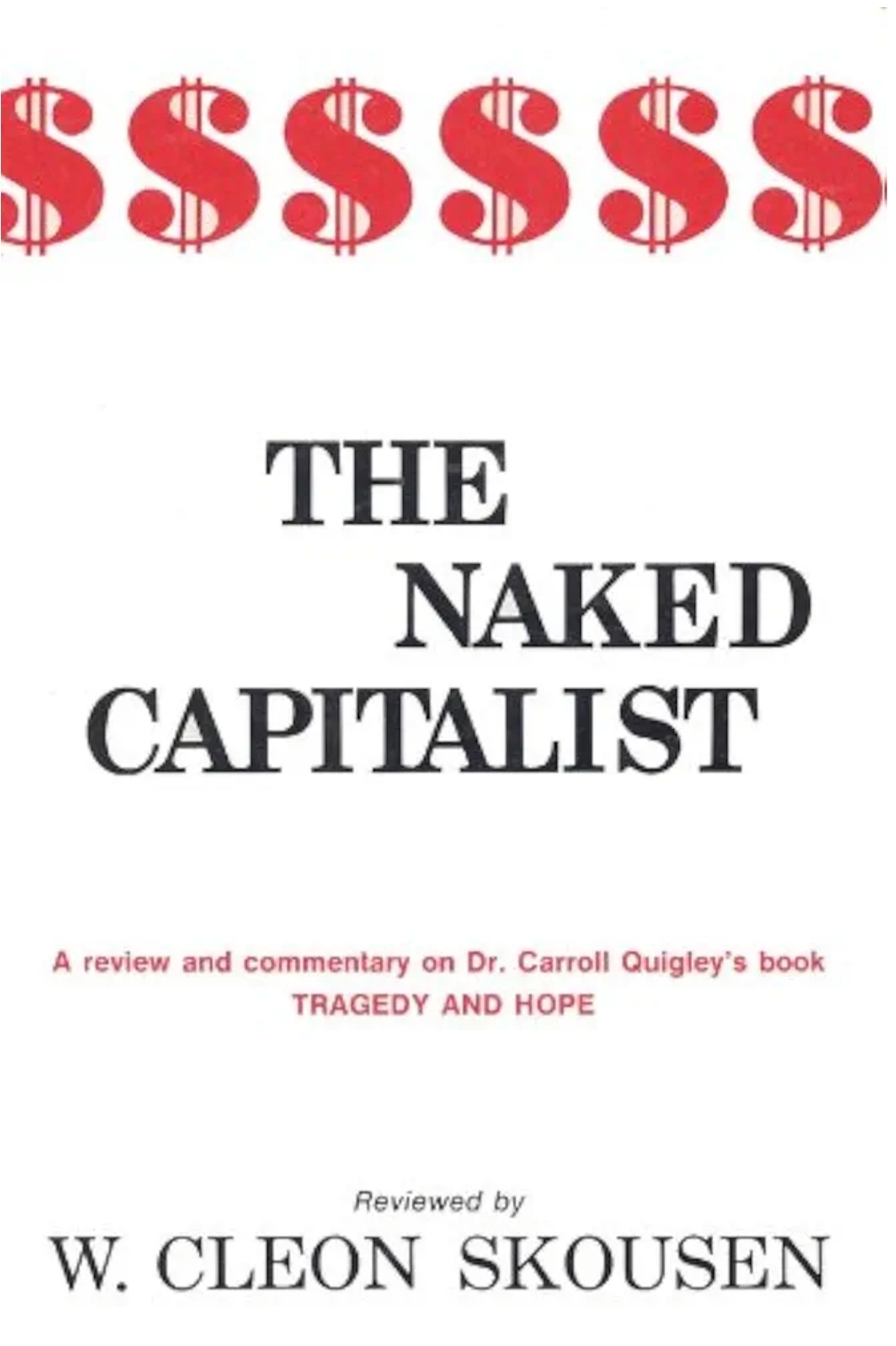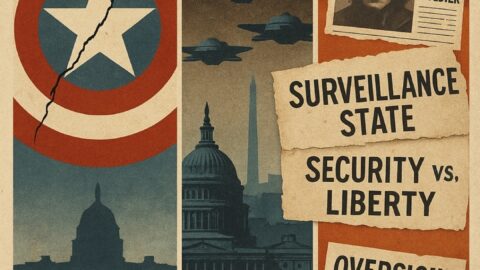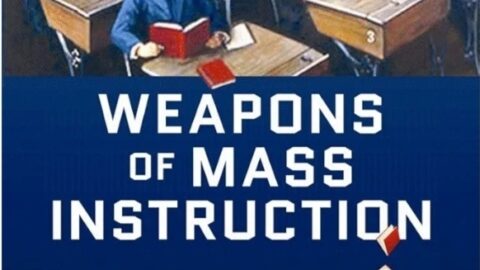The Naked Capitalist by W. Cleon Skousen, published in 1970, is a critical commentary on Dr. Carroll Quigley’s book Tragedy and Hope: A History of the World in Our Time. Skousen uses Quigley’s revelations to argue that a small group of elite individuals—global bankers and capitalists—have been working to establish a worldwide financial and political monopoly. Skousen interprets Quigley’s work as exposing the plans of these elites to dominate global affairs and manipulate world events in their favor.
Overview of Key Ideas:
- The Influence of Elites: Skousen emphasizes the idea that the world is largely controlled by a small group of powerful elites, primarily international bankers, who manipulate governments, economies, and wars for their own benefit. He argues that these elites have infiltrated key political and economic institutions around the world, including in the United States.
- Carroll Quigley’s Insider Knowledge: Skousen draws heavily on Quigley’s admissions that a network of elites exists, and that Quigley himself had access to secret documents that showed their operations and plans. Quigley had no objection to the existence of this elite, but Skousen vehemently disagrees, believing that their influence represents a dangerous threat to freedom and democracy.
- Capitalism vs. Controlled Capitalism: One of Skousen’s main arguments is that true capitalism—an open and free market economy—is being replaced by controlled capitalism, where a few powerful entities (banks and corporations) collude with governments to restrict competition and control markets. This shift leads to monopolies and the erosion of individual freedoms and self-reliance.
- The Role of the Federal Reserve: Skousen is highly critical of the Federal Reserve System, which he sees as a key tool used by the financial elite to manipulate the U.S. economy. He argues that the Federal Reserve’s ability to control money supply and interest rates serves the interests of global bankers rather than the American people.
- Communism and Capitalism as Tools: In Skousen’s view, both communism and controlled capitalism are tools used by the same elites to centralize power. He argues that while these ideologies appear to be in opposition, they both work toward the goal of establishing a global system controlled by the financial elite. In essence, the conflict between communism and capitalism is staged to create chaos, which the elites can exploit to consolidate power.
- World Government and Loss of National Sovereignty: A recurring theme in The Naked Capitalist is the fear of a one-world government. Skousen argues that the elites are working to erode national sovereignty and create a global government in which they will have centralized control. He views international institutions such as the United Nations and various global financial organizations as steps toward this goal.
- Manipulation of Wars and Revolutions: Skousen suggests that the elites manipulate wars, revolutions, and other major global events to further their agenda. He believes that wars like World War I, World War II, and even the Cold War were orchestrated or influenced by these elites to profit from the chaos and to weaken the power of sovereign nations.
- Solutions and Warnings: In the final sections of the book, Skousen warns that unless people become aware of this elite-controlled system, freedom and democracy will continue to erode. He calls for a return to individual liberty, constitutional government, and free-market capitalism as ways to combat the elites’ influence.
Critical Reception:
The Naked Capitalist gained a significant following among individuals who were skeptical of centralized power and globalism. It appealed to those who saw themselves as defenders of liberty and who were concerned about the erosion of personal freedoms and the rise of international organizations.
- Praise: Many appreciated Skousen’s ability to distill complex global issues into a clear narrative, connecting global banking elites, the Federal Reserve, and political manipulation. His interpretation of Quigley’s Tragedy and Hope offered a lens through which readers could view world events as part of a broader, coordinated effort by elites.
- Criticism: On the other hand, critics of Skousen argue that his book relies heavily on conspiracy theories, oversimplifying complex historical and economic events. Detractors accuse him of sensationalism and of creating fear around global institutions without sufficient evidence.
Impact and Legacy:
The Naked Capitalist became a key text among libertarian and conservative groups, particularly those wary of government intervention and global institutions. It contributed to the broader distrust of centralized authority and sparked debates about the role of elites in shaping world events. The book remains influential in certain circles, particularly among those who subscribe to the view that a global elite wields undue influence over political and economic affairs.
Conclusion:
The Naked Capitalist presents a detailed and controversial critique of global elites, arguing that they manipulate world events to create a system of control and domination. Using Carroll Quigley’s admissions as a foundation, Skousen builds a case against what he sees as a conspiracy to subvert democracy and individual freedom in favor of a global financial monopoly. Whether viewed as a valid warning or as conspiracy theory, the book has had a lasting impact on discussions about power, capitalism, and globalism.






